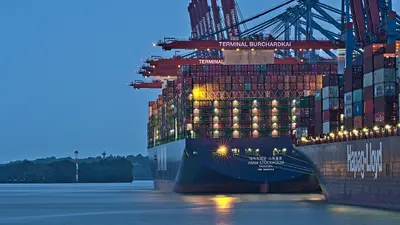Unlocking the Developing World
Stefan Dercon
About the Course
In the last 30 years, the developing world has undergone significant changes. We’ve seen roaring successes and devastating failures. We often talk of equality and economic prosperity for all, and especially those in developing nations, but few actually have a plan to achieve this. Oxford Economist and Director of the Centre for the Study of African Economies, Stefan Dercon puts forward his new formula that allows the poorest countries to take these first steps towards economic prosperity and better lives for their populations: the development bargain.
By the end of this course, you will have learnt:
- The historical and economic reasons why some countries prosper while others lag behind.
- The impact of Western intervention and international aid on development outcomes.
- The principles of the “development bargain” and how it fosters sustainable growth.
- How to create a growth-based culture that combines political and economic pragmatism.
- Practical ways for external actors to support rather than hinder development.
IAI Academy courses are designed to be challenging but accessible to the interested student. No specialist knowledge is required.
About the Instructor
-
Stefan Dercon
Stefan Dercon is Professor of Economic Policy at the Blavatnik School of Government and the Economics Department, and a Fellow of Jesus College. His latest book, Dull Disasters? How Planning Ahead Will Make A Difference was published in 2016 and provides a blueprint for renewed application of science, improved decision making, better preparedness, and pre-arranged finance in the face of natural disasters.
Course Syllabus
-
Part One: Dissecting DevelopmentWhy have some countries been so prosperous while others languish? What role has the West – or aid – played? Who has it got wrong and where has it been successful?
-
Part Two: The Path to ProsperityWhy will promoting the development bargain succeed, where others have failed? How do we foster this ‘growth based culture’ model that brings politics and economics pragmatically together? And how can outsiders such as the UK help and not hinder?
Suggested Further Readings
- Dercon, S., The Development Revolution: A Pragmatic Approach to Global Prosperity, (Oxford: Oxford University Press, 2020).
- Easterly, W., The White Man’s Burden: Why the West’s Efforts to Aid the Rest Have Done So Much Ill and So Little Good, (New York: Penguin, 2006).
- Sen, A., Development as Freedom, (Oxford: Oxford University Press, 1999).
- Collier, P., The Bottom Billion: Why the Poorest Countries Are Failing and What Can Be Done About It, (Oxford: Oxford University Press, 2007).
- Sachs, J. D., The End of Poverty: Economic Possibilities for Our Time, (New York: Penguin, 2005).
- Rodrik, D., One Economics, Many Recipes: Globalization, Institutions, and Economic Growth, (Princeton: Princeton University Press, 2007).


